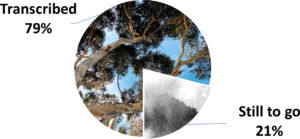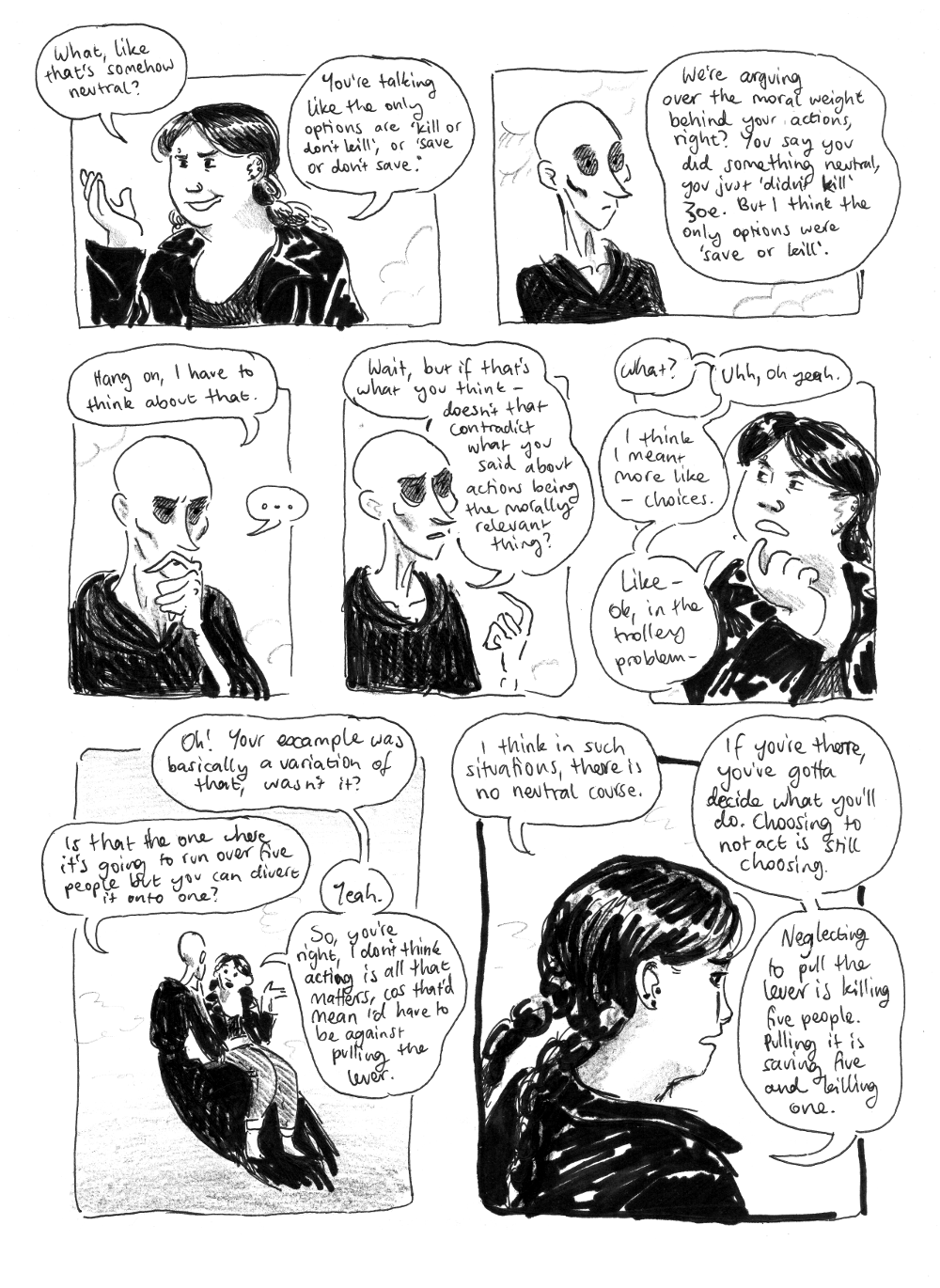Chapter: Chapter 40
↓ Transcript
Emily: What, like that's somehow neutral? You're talking like the only options are 'kill or don't kill', or 'save or don't save'. We're arguing over the moral weight behind your actions, right? You say you did something neutral, you just 'didn't kill' Zoe. But I think the only options were 'save or kill'.
Dee: Hang on, I have to think about that. ... Wait, but if that's what you think - doesn't that contradict what you said about actions being the morally relevant thing?
Emily: What? Uhh, oh yeah. I think I meant more like - choices. Like - ok, in the trolley problem - Oh! Your example was basically a variation of that, wasn't it?
Dee: Is that the one where it's going to run over five people but you can divert it onto one?
Emily: Yeah. So, you're right, I don't think acting is all that matters, cos that'd mean I'd have to be against pulling the lever. I think in such situations, there's no neutral course. If you're there, you've gotta decide what you'll do. Choosing to not act is still choosing. Neglecting to pull the lever is killing five people. Pulling it is saving five and killing one.
---
Alt text: Dee's one wins for being less contrived, not that closed causal loops and arbitrary rules in my fictional universe aren't a bit contrived though
Dee: Hang on, I have to think about that. ... Wait, but if that's what you think - doesn't that contradict what you said about actions being the morally relevant thing?
Emily: What? Uhh, oh yeah. I think I meant more like - choices. Like - ok, in the trolley problem - Oh! Your example was basically a variation of that, wasn't it?
Dee: Is that the one where it's going to run over five people but you can divert it onto one?
Emily: Yeah. So, you're right, I don't think acting is all that matters, cos that'd mean I'd have to be against pulling the lever. I think in such situations, there's no neutral course. If you're there, you've gotta decide what you'll do. Choosing to not act is still choosing. Neglecting to pull the lever is killing five people. Pulling it is saving five and killing one.
---
Alt text: Dee's one wins for being less contrived, not that closed causal loops and arbitrary rules in my fictional universe aren't a bit contrived though








